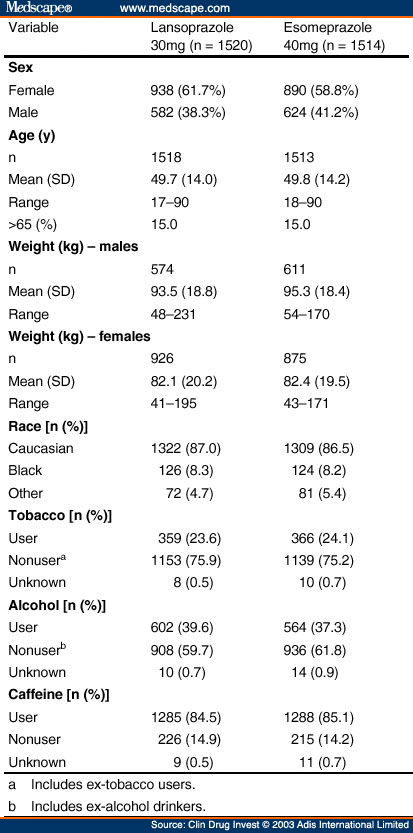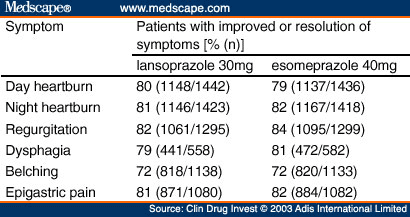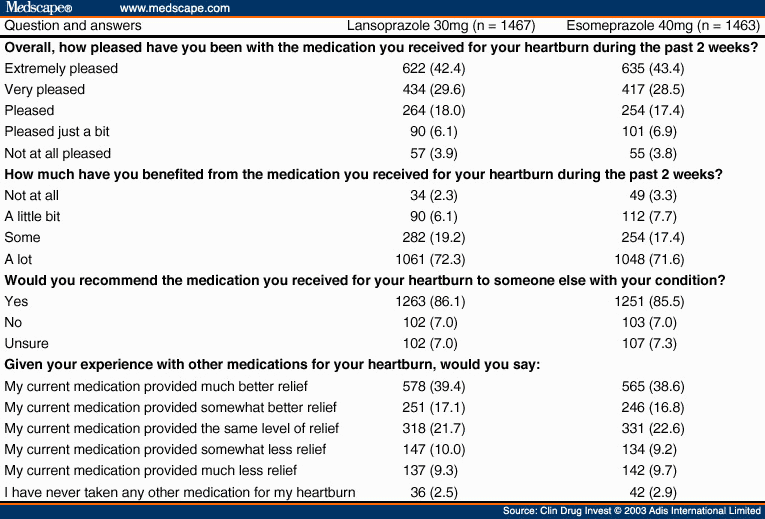Martin V. Acree, MD, Memphis, TN
Raymond Adamcik, MD, MIMA, Palm Bay, FL
Jay Adler, MD, CLINICOS, Colorado Springs, CO
Jose A. Albisu, MD, Chicago, IL
Kathryn Allen, MD, Salt Lake City, UT
James R. Almand, MD, Grand Prairie, TX
Kaushik Amin, MD, Conyers, GA
Marshall W. Anderson, MD, Kernodle Clinic Inc., Burlington, NC
Michael S. Anderson, MD, Emporia, VA
Peter B. Anderson, MD, Hilton Family Practice, Newport News, VA
Stephen T. Ang, MD, Centralia, IL
Ahmed A. Arif, MD, Flint, MI
Darrell Arnett, MD, Nashville, TN
Stephen Arthurs, MD, Kingfisher, OK
Gene Ashe, MD, Frederick Primary Care Associates, Woodsboro, MD
Gerald S. Asin, MD, Phoenix, AZ
Jeffrey A. Atkins, MD, Saint Louis, MO
Barry Austin, DO, Preferred Primary Care Physicians, Inc., Pittsburgh, PA
Jeffrey Ayers, DO, MID Valley Family Practice, Salt Lake City, UT
Robert F. Bader, MD, Santa Ana, CA
M. S. Bahrami, MD, Yorktown, IN
Dwight Bailey, MD, Family Healthcare Associates, Lebanon, VA
Otis R. Barnum, DO, Natchitoches Internal Medicine, Natchitoches, LA
Patricia Barrington, DO, Northeast Family Healthcare, Lawrenceville, GA
Perry Bassett, MD, Stratford Family Medical Clinic, Stratford, TX
Allen L. Beachy, MD, Fort Smith, AR
John M. Beaman, MD, Richton, MS
Dan W. Bell, MD, Mid-Tex Gastroenterology, Waco, TX
Seth Berl, MD, Internal Medicine of Moultrie, Moultrie, GA
Michael Bernui, DO, Middle Tennessee Family Wellness Group, P.C., Hendersonville, TN
Richard G. Berry, MD, Whiteville, NC
Jack G. Bertolino, MD, Lewiston, NY
Douglas Beseth, MD, Investigative Clinical Research, Upland, CA
Thomas D. Bianchi, MD, Southern Drug Research Network/Community Medical Arts Center, Tallassee, AL
James R. Biggerstaff, MD, Family Practice Associates of Orange Park, Orange Park, FL
Thomas Biondo, MD, Havre De Grace, MD
Sidney A. Blake, MD, Internal Medicine Associates, Asheboro, NC
Richard H. Blum, MD, Wilkes-Barre, PA
Daniel T. Borkert, MD, Roland, Borkert, and Schindel, Inc., Lakewood, CO
Chistopher C. Bowe, MD, Primary Care Consultants, St. Louis, MO
Terry D. Box, MD, Mountain West Gastroenterology, Salt Lake City, UT
Milan L. Brandon, MD, Allergy Medical Group of San Diego, Inc., San Diego, CA
Frederick M. Braunstein, MD, Upstate Gastroenterology Associates, Troy, NY
Richard J. Breckwoldt, MD, Georgia Internal Medicine, Douglasville, GA
Michael K. Brockett, MD, Marietta, OH
Andrew Brockmyre, MD, Bristol, TN
Timothy Brotherton, MD, Danville Hematology and Oncology, Inc., Danville, VA
Martin S. Buckman, MD, Overland Park, KS
Joe Buford, MD, North Little Rock, AR
Edward J. Bullock, MD, Salt Lake City, UT
Bruce F. Burtenshaw, MD, Layton, UT
Robert S. Call, MD, Commonwealth Clinical Research Specialists, Inc., Richmond, VA
Dolores M. Cantrell, MD, Troy Family Health Center, LLC., Troy, IL
W. R. Carlisle, MD, Birmingham Gastroenterology Associates, P.C., Birmingham, AL
James M. Carlson, MD, Modesto, CA
James E. Carter, MD, Care Clinic, Gary, IN
Baretta R. Casey, MD, Baretta R. Casey, MD PSC, Pikeville, KY
Andrew Cash, DO, Indiana, PA
Terrance Castor, MD, Worthington Internal Medicine, Worthington, OH
Franklin D. Chambers, MD, Warren, AR
Yong Chang, MD, Arlington, TX
Pravincha G. Chapla, MD, Lycoming Internal Medicine, Inc., Jersey Shore, PA
Ambaram Chauhan, MD, Prime Medical Group, Clairton, PA
Anthony Chieffalo, MD, Woodstock Medical Center, South Woodstock, CT
Allen L. Chodock, MD, Mamaroneck, NY
Ruhul Choudhury, MD, Appalachia Health Services, Williamsburg, KY
David Chua, MD, Summit Digestive Liver Disease Specialists, Oakbrook Terrace, IL
David A. Ciarolla, MD, Fairmont, WV
Frank A. Civitarese, DO, Preferred Primary Care Physicians, Carnegie, PA
Jules J. Cohen, DO, Davie, FL
Louis Cohen, MD, Sarasota, FL
David R. Colan, MD, Internal Medical Association, Grand Island, NE
Frank N. Cole, MD, Fayette Medical Clinic, P.C., Fayetteville, GA
James E. Collins, MD, Rome, GA
Gordon T. Connor, MD, Birmingham, AL
Derek Cooze, MD, Morristown, TN
Clinton N. Corder, MD, PhD, COR Clinical Research, LLC, Oklahoma City, OK
Keith H. Crane, MD, East Paris Internal Medicine Associates, Grand Rapids, MI
James C. Crittenden, MD, Bay St. Louis, MS
Michael A. Cromer, MD, Tampa, FL
Alexander C. Crowe, MD, Sugar Creek Medical Associates, Normal, IL
James M. Cuellar, MD, Primary Care Physicians, Wentzville, MO
Thomas Cummins, MD, White River Diagnostic Clinic, Batesville, AR
Warren A. Daniel, MD, Glenwood Family Practice Clinic, West Monroe, LA
Jan P. Dawson, MD, Hibbing, MN
Antonio R. De Leon, MD, Ortonville, MI
Shwetal Desal, MD, Fairfield, OH
Meera Dewan, MD, Omaha, NE
Frank Dienst, MD, Healthnet of Central FL, Inc., Titusville, FL
David D. Diloreto, MD, Rowan Family Physicians, Salisbury, NC
Edward D. Discoe, MD, Columbus, NE
Michele K. Dodman, DO, Southeastern Gastroenterology Associates, Warren, MI
Richard Dougherty, MD, Charlotte, NC
Waymon Drummond, MD, Renaissance Clinical Research & Hypertension Clinic, Dallas, TX
John Dudzinski, DO, North East, PA
Michael Dupont, MD, Family Medical Center, La Grange, IL
Jimmy D. Durden, Community Medical Arts Center, Tallassee, AL
David R. Dyke, MD, Gastroenterology Specialties, P.C., Lincoln, NE
Charles W. Earnshaw, MD, Alton, IL
Jose T. Edurese, MD, Jackson, MI
Richard Egan, MD, Preferred Primary Care Physicians, Pittsburgh, PA
Russell Emerson, MD, Stanley, NC
Paul Endo, MD, Walnut Creek, CA
James Ensor, MD, Memphis, TN
David S. Estock, MD, David S. Estock, MD, P.A., Wilmington, DE
Omer L. Eubanks, MD, Roswell, GA
Peter A. Eweje, MD, East Carolina Gastroenterology, PA, Jacksonville, NC
Cotton Feray, MD, Tomball, TX
Robert Ferland, MD, Springfield, TN
John Ferris, MD, Grapevine, TX
Steven Fields, MD, Jerome Fields, MD PA, Haleah, FL
Robert R. Fierer, MD, Harrisburg, PA
Maurice J. Fitz-Gerald, MD, Fitz-Gerald/Perret Clinic, Demopolis, AL
Michael G. Foley, MD, Crestview, FL
Stuart A. Frank, MD, Chattanooga, TN
Arnold J. Funckes, MD, Alta Clinical Research, LLC, Tucson, AZ
Syam P. Gaddam, MD, Ravindra Alapati, MD, Inc., Garden Grove, CA
Raul E. Gaona, MD, Pro-research Group, LLC, San Antonio, TX
Joseph H. Gaziano, MD, Sterling Rock Falls Clinic, Sterling, IL
Sandra H. Gibbs, MD, Cochran, GA
Marlin Gill, MD, Gill Family Medicine Office, Decatur, AL
Michael Goldhamer, MD, San Diego, CA
Arnold L. Goldstein, MD, Lofts Internal Medicine, Langhorne, PA
Amarilis Gonzalez, MD, Quantum Care, Inc., Miami, FL
Charles A. Gonzalez, MD, Health South Metrowest, Fairfield, AL
Roy L. Goode, MD, Columbus, IN
John R, Gosling, MD, Clinton, MI
Atul Goswami, MD, Akron, OH
Paranjyothi R. Gowdar, MD, FACP, FACG, Gastroenterology Associates of Hazard, Hazard, KY
James L. Graham, MD, Affinity Health Group, Tifton, GA
David N. Greenhaw, MD, Booneville, MS
Mark G. Griffin, MD, Gastroenterology Specialties, PC, Lincoln, NE
Edward A. Gumm, MD, West Moreland Family Care Center, West Newton, PA
Roger P. Guthrie, MD, Arroyo Medical Group, Arroyo Grande, CA
James R. Hansbrough, MD, Graves Gilbert Clinic, Bowling Green, KY
Charles D. Hanshaw, MD, Tri Phase Research, Ltd., Franklin, OH
Wes F. Hard, MD, Westside Family Practice, Columbus, OH
Francis E. Harman, MD, Meridian, MS
Charles Harris, MD, Cicero, IN
Harvey A. Harris, MD, Columbus, GA
Stephen D. Harrison, MD, Fulton Family Health Clinic, Fulton, IL
Terence T. Hart, MD, Muscle Shoals, AL
Paul Hartley, MD, Preferred Primary Care Physicians, Inc., Uniontown, PA
Grant Hawkins, MD, Internal Medicine Associates, Sandy, UT
George Head, MD, Omaha, NE
Scott A. Heatley, MD, PhD, Pharmaco Dynamics, Redwood City, CA
James L. Heaton, MD, Clinical Research Group of North Georgia, Blairsville, GA
Jeffrey P. Hein, MD, Baden, PA
John G. Helton, MD, Desperes Internal Medicine, Manchester, MO
Adan L. Hernandez, MD, Dr, Harry Pepe and Associates, Inc., Miramar, FL
John Herrod, MD, Sierra Vista, AZ
Herbert H. Heym, MD, Herbert H. Heym, MD, P.A., Wilmington, DE
James A. Hicks, MD, Lexington Family Practice, West Columbia, SC
William C. Hicks, MD, McGregor Medical Clinic, P.A., Mobile, AL
Joseph T. Hilgeman, MD, Des Peres Internal Medicine, Manchester, MO
Eugene H. Hirsh, MD, Gastroenterology Consultants, Inc., Atlanta, GA
Peter R. Honig, DO, Honig Family Medicine, Philadelphia, PA
Thomas E. Hooper. MD, Forest Hills Immediate Care, Wilson, NC
Jerome Howard, MD, North Mecklenberg Family Practice, Charlotte, NC
Yoichi C. Imamura, MD, Internal Medicine at Springfield, LLC., Springfield, OH
Kam Ip, MD, Stephenville, TX
Timothy Izzo, DO, Grand Ledge, MI
Rick L. Jackson, MD, Vancouver, WA
Peter A. Jacobson, MD, Brandon, FL
Pushpendra K. Jain, MD, Cookeville Medical Center, Cookeville, TN
Ray L. James, MD, Peninsula Gastroenterology, Newport News, VA
Frank P. Johnson, MD, Advanced Therapeutics, Johnson City, TN
Linda C. Johnson, MD, Edina, MN
Mark D. Johnson, MD, Salt Lake City, UT
Ruben B. Jones, MD, Tupelo, MS
Shelly Kafka, MD, Altoona Center for Clinical Research, Duncansville, PA
Bruce Kahan, MD, Internal Medicine Associates of North Tampa, PA, Tampa, FL
Robert D. Kaplan, MD, Lebauer Research Associates, P.A., Greensboro, NC
Neil M. Kassman, MD, Statesville Research Institute, Statesville, NC
Nadeem A. Kazi, MD, Casa Grande, AZ
Robert H. Keller, MD, Biodoron, Hollywood, FL
James Kelly, MD, Durham Internal Medicine, Durham, NC
Joseph J. Kernich, MD, Punxsutawhey, PA
Boris Kerzner, MD, Health Trends Research, LLC, Baltimore, MD
James J. Kinahan, MD, Dunwoody Village Clinic, Dunwoody, GA
William W. King, MD, Wilmington Gastroenterology Associates, Wilmington, NC
Ganesh Kini, MD, Conyers, GA
Lee Kinsinger, MD, Illini Family Medicine, Washington, IL
Judith Kirstein, MD, West Jordan, UT
Joseph W. Kittinger, MD, Wilmington Gastroenterology Associates, Wilmington, NC
Stanley Kman, DO, Harford Primary Care, Edgewood, MD
Nicholas A. Knight, MD, Selma Medical Associates, P.C., Selma, AL
Herman C. Knoll, MD, Dayton, OH
Stanley W. Koch, MD, Koch Family Medicine, Morton, IL
Daniel E. Konold, DO, Canal Winchester, OH
Robert Korolevich, MD, Anchor Health Centers, Naples, FL
George Koval, MD, Westhills Gastroenterology Associates, P.C., Portland, OR
Joel E. Krachnan, DO, Jersey Shore Gastroenterology Associates, Somers Point, NJ
Edward J. Kunst, MD, Manchester, MO
Lyle D. Kurtz, MD, Beverly Hills, CA
Richard Lacalamito, DO, Winter Haven, FL
David Lahasky, MD, Kennestone Internal Medicine Associates, Marietta, GA
Ming T. Lai, MD, Medical Associates of Brevard, PA, Palm Bay, FL
Mark Lamet, MD, Hollywood, FL
Kathy L. Lampl, MD, Shady Grove Clinical Research, Rockville, MD
Robert Lapidus, MD, Rocky Mtn. Pulmonary & Critical Care Medicine, Wheat Ridge, CO
Catherine Laruffa, MD, Blanchester, OH
Edward Laub, MD, Trenton, NJ
Fausto Lazo, MD, Lazo Family Medicine, Inc., Bridgeport, OH
James M. Learner, DO, Farmington Hills, MI
Robert H. Lee, MD, Unifour Family Practice, Hickory, NC
Steve Lenhard, MD, Marietta Adult Medicine Associates, Marietta, GA
Michael Lerner, MD, Frederick, MD
Robert T. Lim, MD, Goodlettsville, TN
Noel Lopez, MD, Palm Valley Medical Clinic, McAllen, TX
William C. Lopez, MD, Eastern Medical Specialists, PC, Birmingham, AL
Lewis Loskovitz, MD, Germantown Minor Medical and Family Practice, Germantown, TN
Noor A. Loynab, MD, Guyan Valley Hospital, Logan, WV
Robert D. Madder, DO, Tri-State Medical Group, Inc., Beaver, PA
Barbara E. Magera, MD, PharmD, Asthma, Allergy & Immunology Clinic, Moncks Corner, SC
Frank P. Maggiacomo, DO, New England Center for Clinical Research, Inc., Cranston, RI
Albert Magnin, MD, Morre Miller, Weathington and Associates, PA, Hopewell, VA
William S. Makarowski, MD, C.A.R.E., Erie, PA
Thomas Mandat, MD, Independence, OH
Peter G. Manolukas, DO, Tri-State Medical Group, Inc., Beaver, PA
Kevin Martin, MD, Medical Associates of Eastern Cincinnati, Cincinnati, OH
Rajendra K. Marwah, MD, El Paso, TX
Addam Masri, MD, Apopka Family Practice, Apopka, FL
Nunzio Mastropietro, MD, Mastropitro Family Medicine, Lancaster, PA
Robin L. Matson, MD, Kingfisher Family Care, Kingfisher, OK
Christopher L. Maynard, MD, Athens Medical Group, Athens, TN
Boyd A. McCracken, MD, Greenville, IL
Richard K. McDavid, MD, Johnson City, TN
Robert McEvoy, MD, Bangor, PA
Constance C. McKelvy, MD, CCM Research, Upland, PA
John J. McNerney, MD, Tucson Therapeutic Research Institute, Inc., Tucson, AZ
Robert J. McPhee, DO, Meadowcrest Family Practice, Crystal River, FL
Neil A. Meade, MD, Laurel, MD
Lucien Megna, MD, Richland, WA
John N. Menio, Hanover Family Practice, Hanover Township, PA
Barry Meyer, DO, Warren, MI
Scott B. Middleton, MD, La Habra, CA
Roger Miller, MD, Jacksonville, FL
John D. Mil To, MD, Towson, MD
Seema L. Mishra, MD, MD Health Care, PA, Wilson, NC
Robert T. Mitchell, Gallatin, TN
Jeffrey Moore, MD, Marysville, OH
Glen Morgan, MD, Ocala, FL
Herbert A. Moskow, MD, F. Marion Dwight, MD, PA, Bamberg, SC
Brad A. Mouse, DO, Blue Springs, MO
Valji Munjapara, MD, Southwest Internal Medicine, Inc., Middleburg Hts., OH
George J. Murillo, MD, Tomball, TX
Vincent Murphy, MD, The Woodlands, TX
Edward Myers, DO, Warren, OH
Jayaram B. Naidu, MD, Naidu Clinic, Odessa, TX
Joseph Natole, MD, Saginaw, MI
Gregory Nestor, MD, St Petersburg, FL
Edward H. Newcombe, MD, Boise, ID
Donald Newman, Northside Clinic, Saraland, AL
Thomas M. O'Connor, MD, American Health Network-Greenfield, Greenfield, IN
Yeong H. Oh, MD, Glen Burnie, MD
Edwin J. Ojo, MD, Medical Arts Clinic, Corsicana, TX
Robert Ollins, MD, Kennestone Internal Medicine Associates, Marietta, GA
Jay Panchal, MD, Ocala, FL
Dennis Pangtay, MD, MSCI, Irving, TX
Bernard Pare, MD, Mount Juliet, TN
Alexander Pareigis, MD, Moline, IL
Mukesh Patel, MD, Tioga, ND
Sridhar V. Patnam, MD, Preferred Primary Care Physicians, Inc., Uniontown, PA
John A. Patton, MD, Winchester, Patton, Burgess, P.S.C., Whitley City, KY
Robert C. Patton, MD, Gastroenterology Associates, Kingsport, TN
John W. Paulish, DO, Towanda, PA
Shara Peets, MD, Mercy Care Center, Watertown, NY
Philip A. Penepent, MD, Bowmansville, NY
Jorge Perez-Alard, MD, Pasadena, MD
Tri M. Pham, MD, Modesto, CA
Gregory J. Phillips, MD, Fort Worth, TX
Ronny Phipps, MD, Centerton, AR
Michael Piansky, MD, Georgia Internal Medicine, Douglasville, GA
Paul W. Pierce, MD, Vicksburg, MS
Michael E. Posey, MD, Memphis Internal Medicine, Memphis, TN
Mark A. Posner, MD, Allergy & Asthma Specialists, PC, Blue Bell, PA
J. M. Provenza, MD, Shreveport, LA
Ronald Pruitt, MD, Nashville Medical Research Institute, Inc., Nashville, TN
Joseph A. Puma, DO, Advanced Health Institute, Galax, VA
Marina Raikhel, MD, Torrance Clinical Research, Torrance, CA
Kallambella, Ramesh, MD, Medical Office, Monroe, GA
Jehangir Rao, MD, Wayne, MI
Roderick Rapier, MD, San Diego, CA
Sheldon J Ravin, DO, Colorado Springs, CO
Jonathan E, Reimer, MD, Augusta, GA
Dalton Rhea, MD, Arlington, TX
Lewis H. Roberson, MD, Kings Mountain, NC
Rob J. Robinson, MD, Indianapolis, IN
Jeffry Rocker, DO, Alafaya Woods Family Medical Center, Oviedo, FL
Jane L. Rohlf, MD, Trenton, NJ
Ayodji Rosanwo, MD, St. Joseph Senior Health Services, Fort Wayne, IN
Andrew Rose, MD, Chester, VA
Robert D. Rosen, MD, FAAFP, Winston-Salem, NC
Mario Z. Rosenberg, Research Foundation of America, Los Angeles, CA
Herbert A. Rubin, MD, Los Angeles, CA
Lee C. Ruotsi, MD, Lewiston, NY
Theodora Saddoris, MD, Columbus, IN
Burton P. Sanders, MD, Sterling Primary Care, Nashville, TN
Deepak Santram, MD, Santram Medical Associates, West Grove, PA
Paul D. Sarna, MD, Texarkana, TX
Barry A. Scanlan, DO, Riverside Medical Associates, PA, Gastonia, NC
Earl C. Scheidler, DO, Cincinnati, OH
Kevin G. Schendel, MD, Baltimore, MD
Michael J. Schmalz, MD, Milwaukee, WI
Philip Schwartz, MD, South Coast Medical Group, Savannah, GA
William M. Scott, MD, Easley, SC
Nathan Segall, MD, Clinical Research Atlanta, Atlanta, GA
Pedro Serrant, MD, Slidell, LA
Dan G. Severa, MD, Family Practice Associates, Lawrence, KS
Atul R. Shah, MD, Mid-Atlantic Medical Research Center, Prince Frederick, MD
Gaurang Shah, MD, Richmond, KY
Prakash N. Shah, MD, Hopkinsville, KY
Umedchandra K. Shah, MD, Hollywood, MD
Souhail G. Shamiyeh, MD, Medical Associate of Southwest Virginia, Norton, VA
Stanley P. Sharp, MD, Kansas City, MO
John Shaw, MD, Sterling Primary Care, Nashville, TN
Neal L. Shealy, MD, Varnville, SC
Cameron A. Shearer, MD, PharmD, Mount Juliet, TN
Thomas Shetter, MD, Butler, PA
Michael E. Shinn, MD, Kansas City, MO
Bavikatte N. Shivakumar, MD, Gastrointestinal Clinic of Quad Cities, Davenport, IA
Dhana D. Shrestha, MD, Bay Area Health Clinic, Bay City, MI
Gerard Siciliano, MD, Gastroenterology Medical Group, Louisville, KY
John Simmons, Geneva, AL
Timothy C. Simmons, MD, West Gastroenterology Medical Group, Los Angeles, CA
George Siniapkin, MD, Corinth, NY
Chirapa Sinthusek, MD, Winston Salem, NC
Neal L. Sklaver, MD, Medical Specialists Associated, Dallas, TX
Alex J. Slandzicki, MD, Columbia, TN
David J. Smith, MD, Grand Ledge, MI
Lynn N. Smith, MD, Valley Medical Associates, Lewisburg, WV
Micke J. Smith, MD, Savannah, TN
Ray F. Smith, MD, Smith Family Clinic, Harlingen, TX
Robert C. Snyder, MD, Pelham, AL
Kathy Sparacino, MD, Decatur, AL
Eugene J. Spiotta, MD, Memphis, TN
John M. Stafford, MD, Royalton Medical Center, St. Joseph, MI
John O. Stanley, MD, Kansas City, MO
Wanda J. Starling, MD, Landrum, SC
Mark A. Stern, MD, Dekalb Gastroenterology Associates, Decatur, GA
Karl F. Stine, MD, Cresson, PA
Brian Stone, MD, Winston Salem, NC
Mark A. Strauss, MD, Physicians Group Research Clinic, LLC, Little Rock, AR
Roland S. Summers, MD, Savannah, GA
Ronald Z. Surowitz, DO, Health Awareness, Inc., Jupiter, FL
James W. Tanner, MD, Lawrenceville, GA
Andrea V. Tarjan, MD, Janesville, WI
Lee Taylor, MD, Family Physicians of Spartanburg, Spartanburg, SC
Craig J. Teveliet, MD, Hoquiam, WA
Christopher Thoming, MD, Westover Heights Clinic, Portland, OR
Cornelius Toma, MD, Mercerville, NJ
Lewis Tondo, MD, Carolina Primary & Urgent Care, Troutman, NC
Charles H. Tripple, American Health Network, Plainfield, IN
Krishna Tripuraneni, MD, Palm Beach Clinical Research Associates Inc., Loxahatchee, FL
Narciso B. Tuanquin, MD, Logan, WV
Wayne I. Tucker, DO, Bear, DE
Clarence Uy, MD, Chiefland, FL
Chris A. Vansickle, MD, Tallahassee, FL
Prakash K. Vin, MD, Derry, PA
William D. Vines, MD, East Tennessee Medical Group, Alcoa, TN
Anthony Vitelli, MD, Preferred Primary Care Physicians, McMurray, PA
Ronald E. Waldridge, MD, Shelbyville, KY
L. Robert R. Warren, MD, Belvidere Clinic, Belvidere, IL
James R. Watson, MD, Lafayette, IN
Mark Waxman, MD, North Arlington, NJ
Nabil K. Wehbe, DO, Novi, MI
James H. West, MD, Roswell, GA
Glenn R. Willett, MD, Kernodle Clinic, Mebane, NC
John D. Williams, MD, Stillwater, OK
Kenneth H. Williams, MD, Maryland Family Care, Baltimore, MD
Kevin J. Wingert, MD, Clovis, CA
Peter J. Winkle, MD, Orange County Clinical Research Inc., Cypress, CA
Leonard Wojnowich, MD, South Coast Medical Group, Savannah, GA
Kenneth J. Wolok, DO, Sterling Heights, MI
Rajiv Yakhmi, MD, Master Family Practice, Columbus, OH
Ronald Yanagihara, MD, South Valley Medical Plaza, Gilroy, CA
George T. Yang, MD, West Covina, CA
Laurence Yellen, MD, Cardiology Associates, San Diego, CA
Samina Yousuf, MD, Community Medical Care, Lebanon, VA
Michael J. Zachek, MD, Graves Gilbert Clinic, Bowling Green, KY
John Zazaian, DO, Michigan Internal Medicine Associates, Waterford, MI
Robert P. Zgliniec, MD, Ramona, CA
Alan E. Zloto, DO, Town and Country Internal Medicine, Tampa, FL















